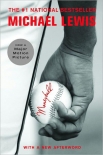Moneyball by Lewis, Michael (books to read in your 30s TXT) 📗

Book online «Moneyball by Lewis, Michael (books to read in your 30s TXT) 📗». Author Lewis, Michael
For his part, Billy Beane had never heard of Bill James. “But that was the big moment,” he said, “when I figured out that all the stuff Sandy was talking about was just derivative of Bill James.” His mind had finally found an escape hatch. It led to a green field as far away from professional baseball as you could get and still be inside the park.
Chapter
IV
Field of Ignorance
I didn’t care about the statistics in anything else. I didn’t, and don’t pay attention to statistics on the stock market, the weather, the crime rate, the gross national product, the circulation of magazines, the ebb and flow of literacy among football fans and how many people are going to starve to death before the year 2050 if I don’t start adopting them for $3.69 a month; just baseball. Now why is that? It is because baseball statistics, unlike the statistics in any other area, have acquired the powers of language.
—Bill James, 1985 Baseball Abstract
There is a certain kind of writer whose motives are ultimately mysterious. The writer born into a family of writers; the writer whose work is an attempt to make sense of some private trauma; the writer who from the age of four is able and willing to stay in his room and make up stories: each of these creatures is a stereotype. What he writes may be good, but why he writes isn’t something you particularly want to hear more about. The interesting case is a writer like Bill James. He grew up in a not unhappy family in Mayetta, Kansas (population: 209), and the closest he came to an uprooting experience was the move from there down the Interstate Highway to Lawrence. There, at the University of Kansas, James studied economics and literature. He didn’t know any literary types, had no apparent role models, and was not encouraged in any way to commit his thoughts to paper. After a shaggy dog story in the U.S. Army—he was the last man from Kansas drafted to serve in Vietnam but never was sent—and a fruitless layover in graduate school, he found a job as the nightwatchman in a Stokely Van Camp pork and beans factory.
It was while guarding Stokely Van Camp’s pork and beans that James stumbled seriously into putting his thoughts down on paper, in response to having things he absolutely needed to say that he was unable to convey any other way. “Every form of strength is also a form of weakness,” he once wrote. “Pretty girls tend to become insufferable because, being pretty, their faults are too much tolerated. Possessions entrap men, and wealth paralyzes them. I learned to write because I am one of those people who somehow cannot manage the common communications of smiles and gestures, but must use words to get across things that other people would never need to say.”
Even more oddly, everything James needed to say was either about baseball, or could be said only in the context of a discussion of baseball. “I’d probably be a writer if there was no such thing as baseball,” he said, “but because there is such a thing as baseball I can’t imagine writing about anything else.” He was, from time to time, aware of the absurdity of devoting an entire adult life to the search for meaning in box scores. He never seems to have resisted his instinct to do it. “Now, look,” he wrote to his readers, once he’d become an established, successful author, “both of my parents died of cancer, and I fully expect that it’s going to get me, too, in time. It would be very easy for me to say that cancer research is more important to me than baseball—but I must admit that I don’t do anything which would be consistent with such a belief. I think about cancer research a few times a month; I think about baseball virtually every waking hour of my life.”
James’s first book was self-published—photocopied and stapled together by himself—and ran just sixty-eight pages (production budget: $112.73). Its formal title was: 1977 Baseball Abstract: Featuring 18 Categories of Statistical Information That You Just Can’t Find Anywhere Else. To sell it, James took out a single one-inch advertisement in The Sporting News. Seventy-five people found it alluring enough to buy a copy. Opening its pale blue cover, they found a short opening explanatory paragraph that failed to explain anything much, followed by sixteen pages of baseball statistics. Astonishingly short and abrupt paragraphs followed by pages and pages of numbers: that was James’s quixotic early approach to getting across what he had to say. Were it not for the author’s frequent assertion that it was one, there was no reason to think of the first Baseball Abstract as a book. (“In this next section of this book…”) And there was certainly no reason to think that the writer had the capacity to lead the reader to a radical, entirely original understanding of his subject. What little James actually wrote in his first book felt stage-frightened. The questions he posed—Do some pitchers draw bigger crowds than others? How much effect does an umpire crew have on the length of a game?—could not possibly have interested anyone but the nuttiest baseball nut and, in any case, couldn’t be answered confidently with the data James had, from a single baseball season.
It wasn’t until the end of the 1977 Baseball Abstract that James offered his cocktail party-sized readership a glimpse of his potential. The topic that finally gets him sufficiently worked up that he devotes several entire pages to it of nothing but words is: fielding statistics. The manner in which baseball people evaluate players’ fielding performance—adding up their errors, and applauding the guy





Comments (0)